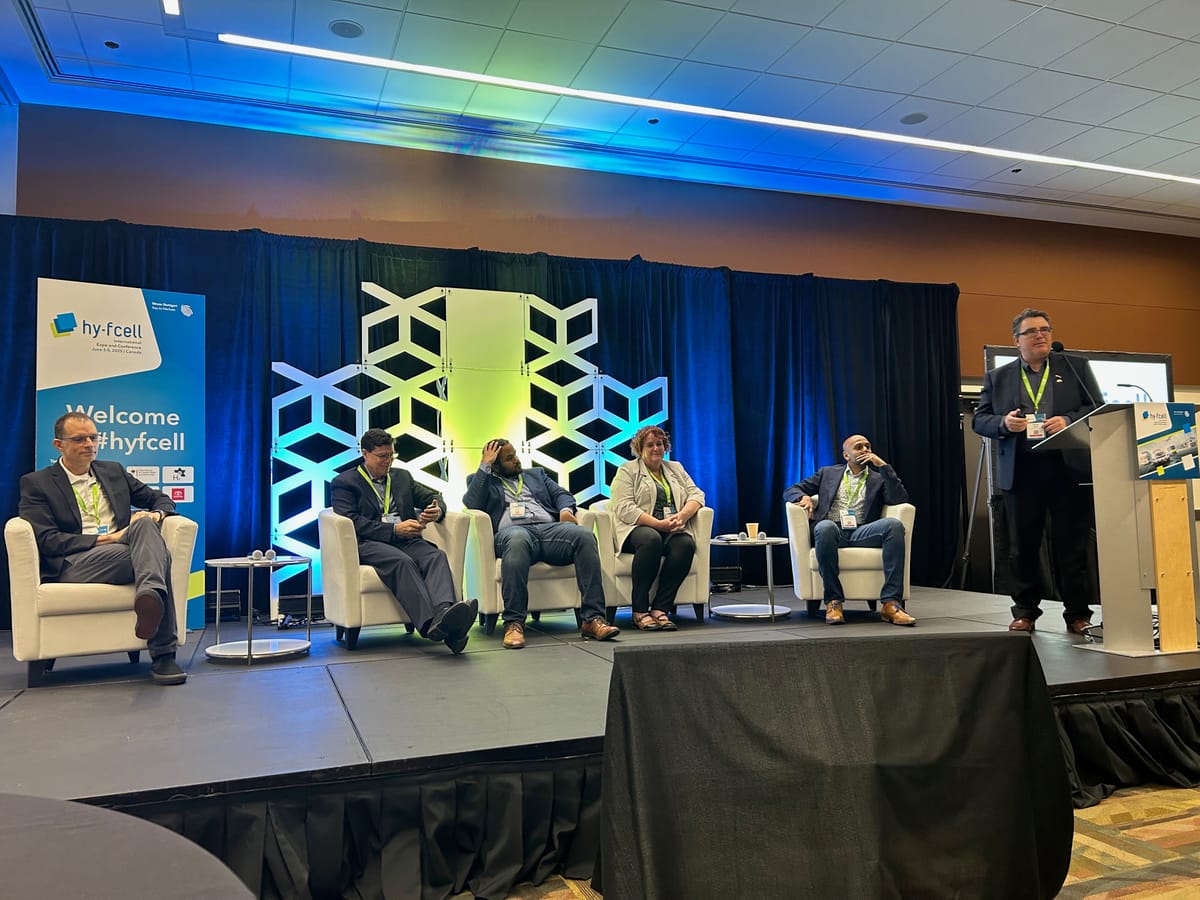
By Elke Porter | WBN News Vancouver | June 5, 2025
Subscription to WBN and being a Contributor is FREE!
At Hy-Fcell Canada 2025, an insightful panel titled “Aviation – Pioneering Sustainable Skies” confronted a lingering public and industry concern: the fear of hydrogen. While no formal term like hydrogenphobia exists in psychology or engineering, the hesitation around hydrogen use—especially in aviation—is real. This apprehension stems largely from its historical association with the Hindenburg disaster and concerns about safety, volatility, and storage.
Just in case someone hasn't heard about this story, The Hindenburg Disaster occurred on May 6, 1937, when the German passenger airship LZ 129 Hindenburg caught fire and was destroyed during its attempt to dock at Naval Air Station Lakehurst in New Jersey. The tragedy claimed the lives of 36 people—13 passengers, 22 crew members, and one ground worker—and was captured on film and radio, shocking the world. At the time, the Hindenburg was the largest flying machine ever built and a symbol of technological advancement. The disaster, likely caused by a spark igniting the ship’s hydrogen gas, ended the era of airship travel and cast a long shadow over the use of hydrogen in transportation, fuelling decades of public fear and skepticism about its safety.
Moderated by Manuel Hernandez from the National Research Council Canada, the panel brought together industry leaders to demystify hydrogen’s role in aviation and present a vision where sustainability and safety coexist. Wendy Avis from Vancouver International Airport (YVR) emphasized the airport's commitment to decarbonization and public engagement, noting that transparent communication is essential to earning public trust.
Tristan Crees of Hydrogen In Motion Inc. (H2M) addressed the technical advancements in hydrogen storage and transport, asserting that today's technologies are far more secure than in past decades. Andrew Desouza from Ballard Power Systems showcased how fuel cells have already proven reliable in buses and marine applications, laying a strong foundation for aviation.
Omar Kassem of Salish Elements, an Indigenous-led energy firm, added an important cultural dimension, explaining how community involvement and education are key to acceptance, especially in rural and Indigenous territories. Jose Rubio of AVL Fuel Cell Canada brought a systems integration perspective, highlighting how simulation and safety testing protocols are now rigorous enough to ensure aviation-grade reliability.
As hydrogen infrastructure scales, this panel made it clear: the fear of hydrogen, though historically justified, is now an outdated barrier. With leadership from YVR and its partners, the aviation industry is on track to rewrite the narrative—making hydrogen not a threat, but a beacon of sustainable progress.
#HyFcell Canada 2025 #Hydrogen Future #Clean Aviation #Sustainable Skies #Fuel Cell Innovation #YVR Airport #WBN News Vancouver #Elke Porter
Connect with Elke at Westcoast German Media or on LinkedIn: Elke Porter or contact her on WhatsApp: +1 604 828 8788


